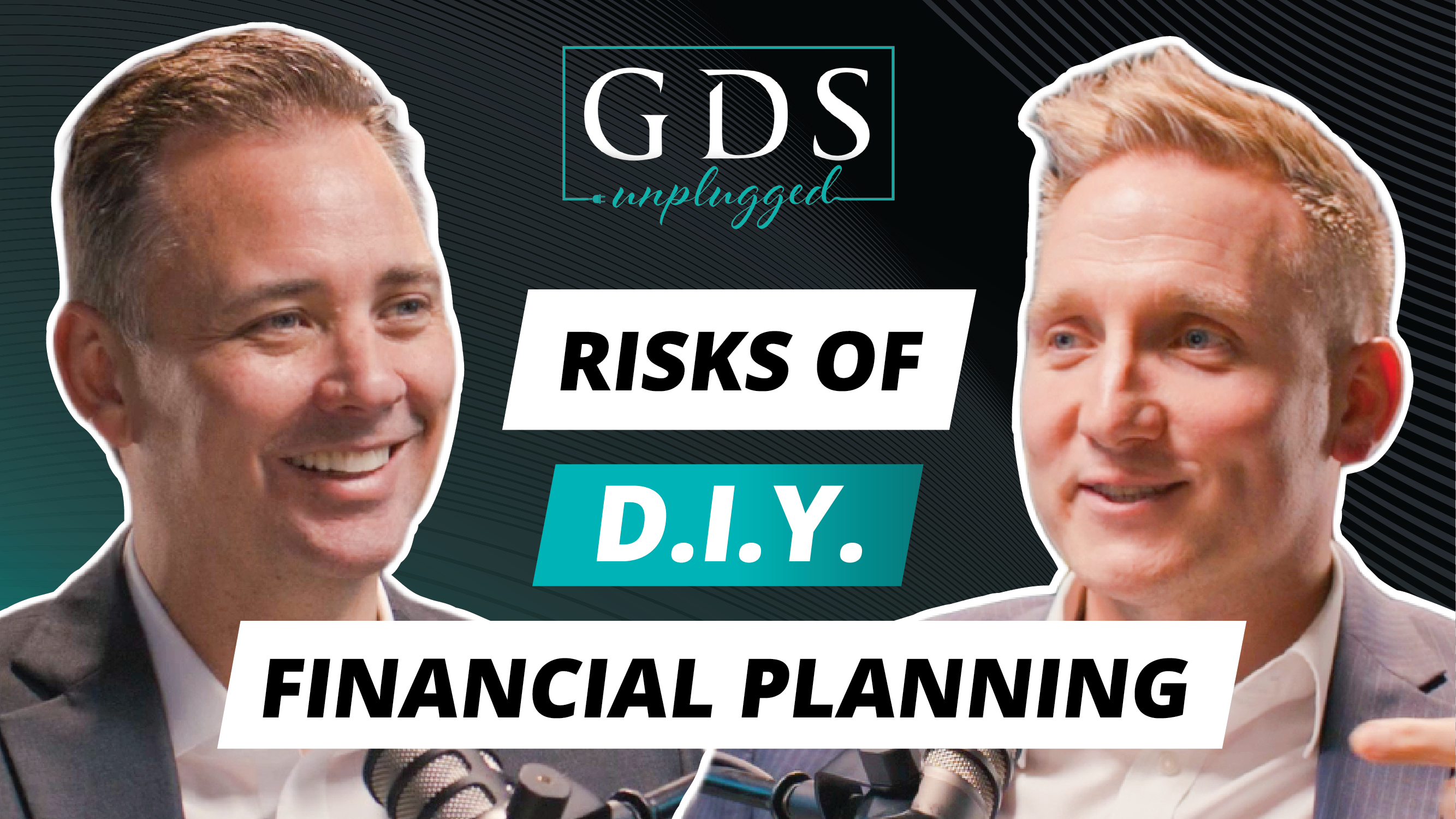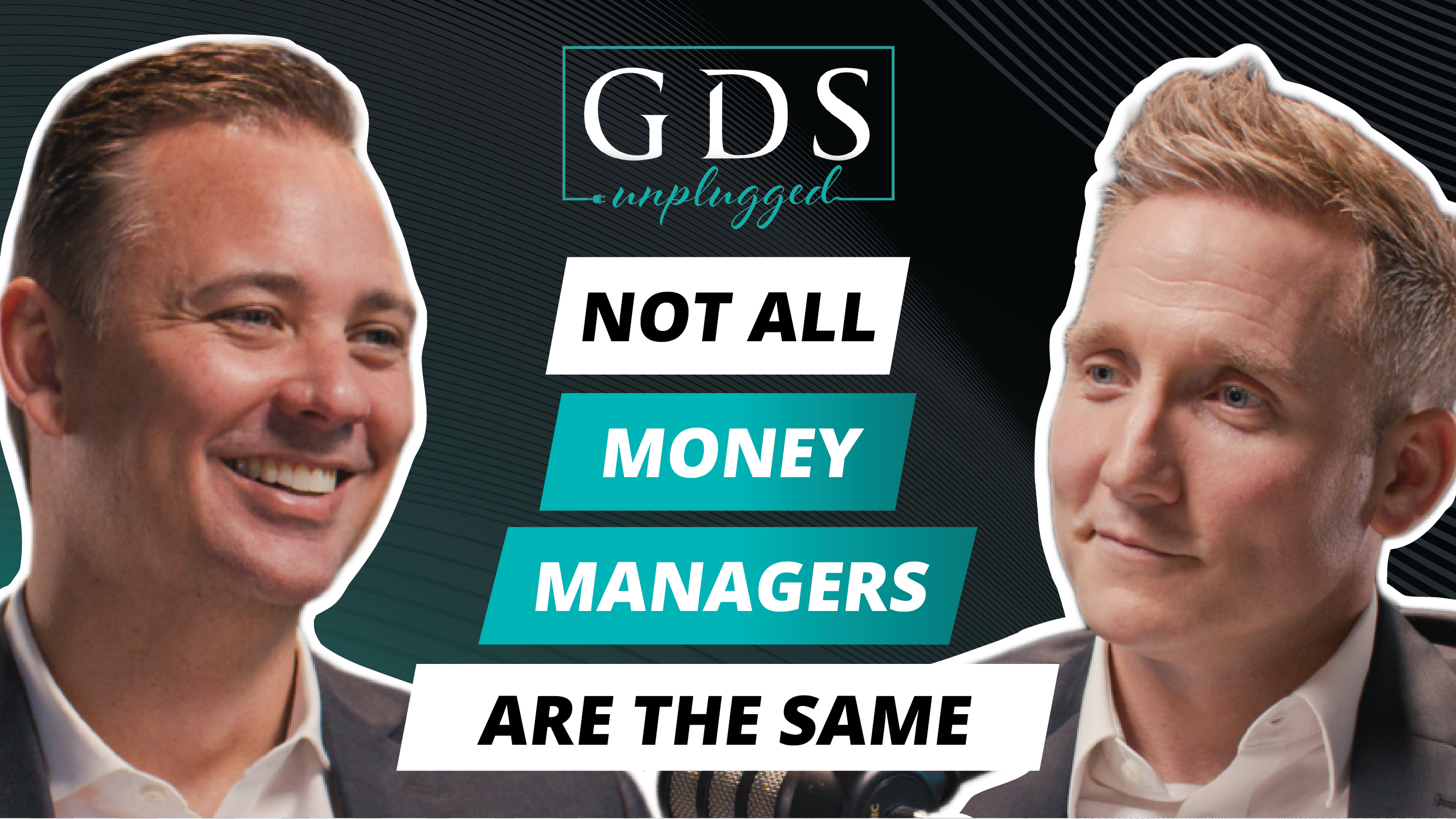Why You Shouldn’t Panic When the Market Drops [Ep. 2]
July 3rd, 2025
3 min read

Listen on
View the full transcription of this episode here.
About This Episode
Market volatility can be a daunting experience for any investor, but understanding how to navigate these turbulent times is crucial for long-term financial success. If you've ever felt the urge to panic during a market drop, you're not alone.
In this episode of GDS Unplugged, Glen and Robert delve into the intricacies of market volatility, breaking down why it happens, how to manage your emotions, and the strategies you can employ to protect and grow your investments.
The Basics: What is Market Volatility?
Market volatility refers to the ups and downs in security prices. These fluctuations can be caused by various factors such as economic events, political instability, or changes in market sentiment. While it can be unsettling, it's important to remember that volatility is a normal part of investing.
Managing Your Emotions During Market Volatility
It’s important to stay calm and avoid emotional decisions during market downturns. Many investors find that consistent, incremental gains—like hitting singles and doubles in baseball—can contribute meaningfully to long-term goals, rather than always aiming for big wins or "grand slams.” When you swing for the fences, you’re more likely to strike out. But small wins really add up. Remember, it's crucial to mitigate losses during bad years and stick to your investment goals.
Common Mistakes to Avoid
A major mistake individual investors make is moving to cash or conservative investments after significant losses. It’s valuable to understand your risk tolerance and maintain a diversified portfolio. Diversification helps in managing risk and ensuring a balanced approach.
The Role of Diversification
Diversification is essential for managing risk. Concentrated investments, like putting a large portion of money in a single stock, can be risky. Sure, you could win big, but you could also lose everything — and if a single stock plummets and you’ve put all your eggs in that basket, you could be in a terrible position. Diversification helps in mitigating losses and ensuring a balanced approach. A diversified portfolio can help you weather market volatility and recover during market upswings.
Financial Planning and Market Volatility
Financial planning is crucial for understanding and managing risk. It can be compared to a doctor performing an MRI before surgery—the need for a clear plan of action is essential. A well-thought-out financial plan allows you to make informed decisions and avoid emotional reactions during market downturns.
Resources
Ready to take your learning to the next step?
- Connect with Glen Smith and Robert Casey on LinkedIn.
- Check out our blog on Navigating the Bonds Market.
- Subscribe to our YouTube channel.
- Contact GDS Wealth Management for a complimentary financial consultation.
- Submit your questions to Glen and Robert, GDS Unplugged mailbag by emailing gds@gdswealth.com.
Why Listen?
This episode is packed with valuable information and practical advice for anyone navigating market volatility. Tune in to gain a deeper understanding of market fluctuations and how to manage your investments during these times. Don't miss out on this opportunity to enhance your knowledge and take control of your financial future.
GDS Wealth Management (“GDS”) is an SEC-registered investment adviser. Registration as an investment adviser does not imply a certain level of skill or training. GDS does not provide tax or legal advice. You should contact your tax advisor, accountant, and/or attorney before making any decisions with tax or legal implications. This podcast is provided for informational purposes only and should not be construed as investment, tax, legal, or financial planning advice. The content is based on assumptions, theories, and principles that may not fully reflect an individual’s situation.
Views and opinions reflect the judgment of the authors as of the publication date and are subject to change without notice. Investing involves risk, including the potential loss of principal. Past performance is not indicative of future results. The S&P 500 is an unmanaged index of 500 large-cap U.S. stocks and cannot be invested in directly. Tax loss harvesting strategies involve complexities and should be evaluated carefully with the help of a tax or financial advisor. There is no guarantee that any investment strategy, including tax strategies or asset allocations, will be successful. Any forward-looking statements or forecasts are based on assumptions and current market conditions and are subject to change without notice. Actual results may differ materially.
For additional information about GDS, including its services and fees, material risks, and firm’s disclosures, please visit https://www.gdswealth.com.
At GDS Wealth Management, we aim to provide clients with highly personalized and attentive financial advice, coaching, and administrative support. Our experienced team of local financial planners is proud to offer the families and individuals we serve both the credentialed guidance and expertise needed to help you reach your lifelong financial goals.
Topics:






















.png?width=2667&height=1500&name=682e02131511aa408dae6600_Unplugged_Ep4_0525-01%20(1).png)